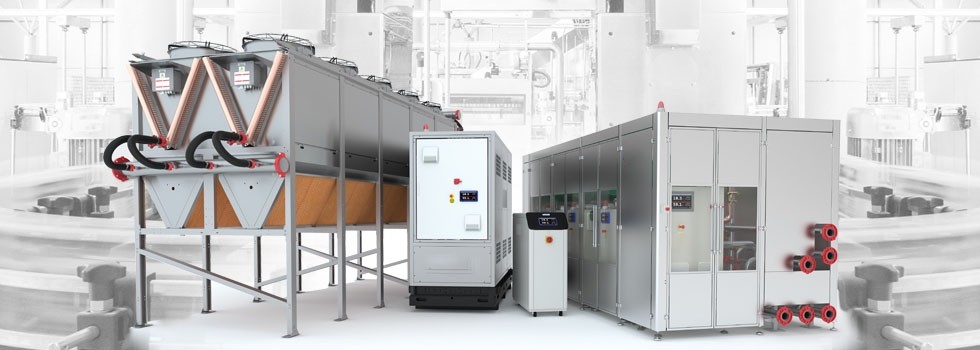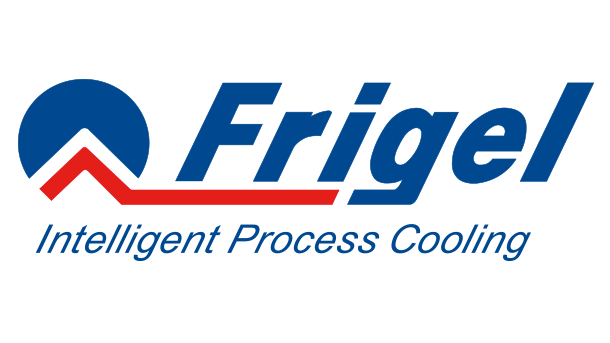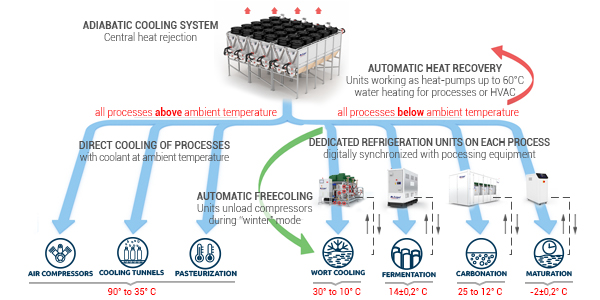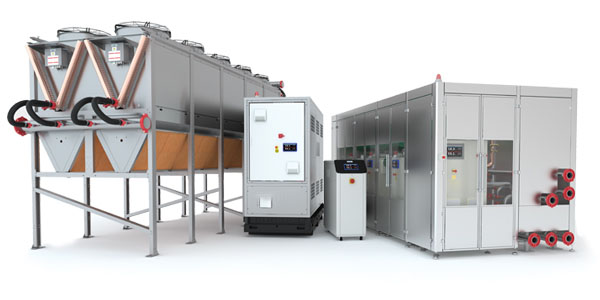Promotional Features
Process-synchronized cooling: a new approach for the beverage industry
The old way
For decades and despite tremendous technological progress in all aspects of beverage processing, the "central refrigeration plant" has been and still is the most common solution to all process cooling requirements in the industry.
It is well known that cooling has a very large impact on beverage businesses,heavily affected by cooling performance.
Even though each process has its specifics needs, the central system would supply the same cooling conditions to all of them by pumping from the distant "utilities area", a large over-flow of coolant at the minimum temperature required among them. Then each process will control the flow of coolant according to its specific needs, thus creating fluctuating conditions to the whole systems flow and affecting the stability of the other processes.
In few words, central cooling has always been conceived as a "factory utility", an extremely "rigid" solution and a system very difficult to balance, running at low levels of overall efficiency.
In an industry where "synchronization in everything", there is still no "link" between cooling and processing equipment.
On the other hand, refrigeration plants are extremely expensive to run and have a very high environmental impact in terms of both carbon and water footprints.
Moreover, central systems typically run with large amounts of glycol and ammonia, which are becoming, more and more, a big issue in terms of both risks for health and for the plants and their environment, not to mention the insurance costs to cover them.
The innovation:
Beverage companies can now deploy integrated cooling systems designed to perform better and cost less than the traditional solution.The system is based on two technologies:
1. Process-synchronized refrigeration units- (Microgel and MultiStage)
In this approach, one cooling unit (chiller) is dedicated to each main processing line, specifically designed for the application in terms of cooling and pumping capacities.
Compact, factory built and pretested, each cooling unit may have single-stage or multi-stage-cascade refrigeration circuits that operate inverter driven screw compressors with latest generation "green refrigerant" gas and inverter driven process pumps.
The units are easily installedand connected to each process, digitally-synchronized with the processing lines and automatically operated by them, delivering with high precision the set of cooling parameters (coolant temperature and flow rate) pre-programmed by the operator.
Optionally, they may also be operated as "heat pumps" to produce hot water (up to 60C) to be used either for process purposes or room heating (HVAC)during winter.
2. Central adiabatic cooling system (Ecodry)
To complete the system innovation, the cooling units installed at each process are connected to a central adiabatic cooling system installed out-doors in order to reject to ambient the heat extracted from processes (if not recovered). This modular system – alternative to old-style evaporative cooling towers - is made of close circuit adiabatic fluid coolers with large copper coils and aluminum finned-pack heat-exchangers and inverter driven DC-brushless fans, that can keep coolant temperature even lower than ambient temperature, thanks to the patented adiabatic chamber which, during high ambient temperature conditions, pre-cools the air before it reaches the heat exchangers.
Obviously, this central system can also provide direct cooling to all processes requiring temperatures above ambient,such as air compressors, cooling tunnels, pasteurizers, etc.
Performance:
The system brings overall performance to a higher level in beverage manufacturing owing to its increased productivity,reduced operating cost and modularity.
Increased productivity:
The "process synchronized cooling" guarantees that each processing line always runs consistently at the highest throughput. In many beverage processes,especially those with a high cooling demand, an increased productivity of 20 to 30% can be achieved.
This is due to four main reasons:
- Maximum flexibility.
- Excellent stability.
- Full automation and connectivity.
- High reliability.
Reduced operating costs:
The system lowers running costs when compared to traditional central systems.
The system based on individual cooling units per each process grants energy savings of up to 30%, due to four main reasons:
- Higher overall refrigeration performance of system (EER/COP).
- Higher refrigeration efficiency of cooling units (EER/COP).
- Free-cooling opportunities (Optional)
- Heat recovery opportunities (Optional)
The System uses a central adiabatic cooling system for heat rejection of the whole thermal loads of the plant to cut water use by up to 95%. This technology operates water evaporation only during short periods of time whenever ambient temperature is extreme (above 30°C). An “on demand” intelligent saving software operates adiabatic mode only when needed, otherwise the system runs completely dry.
The refrigeration units are made of relatively small chillers, which require low expertise to maintain or repair. The chillers are built with leakage-free refrigeration circuits, which makes them almost maintenance free. Operating with innocuous gases they do not require any specific safety infrastructure, saving all costs involved including safety insurance policies. On the other side, the central adiabatic system is a close loop circuit that grants excellent heat transfer with maintenance-free coolant, avoiding scale accumulation, with no need of ongoing water treatment.
Total Modularity
This modular and plug and play concept has many additional advantages compared to traditional system. It is easily expandable at any time, which allows the installation of the precise capacity needed at every stage of the plant growth.
Sustainability
The Ecodry System can help to reduceenvironmental impact. The main advantages are:
- Carbon footprint reductions of up to 50%
- Water use reductions of up to 95%
Moreover, this system does not require of big thermal inertial central tanks and so operates with 90% less glycol than a central system. Additionally, it doesn't dispose any chemicals from water treatment as evaporative cooling towers do.



